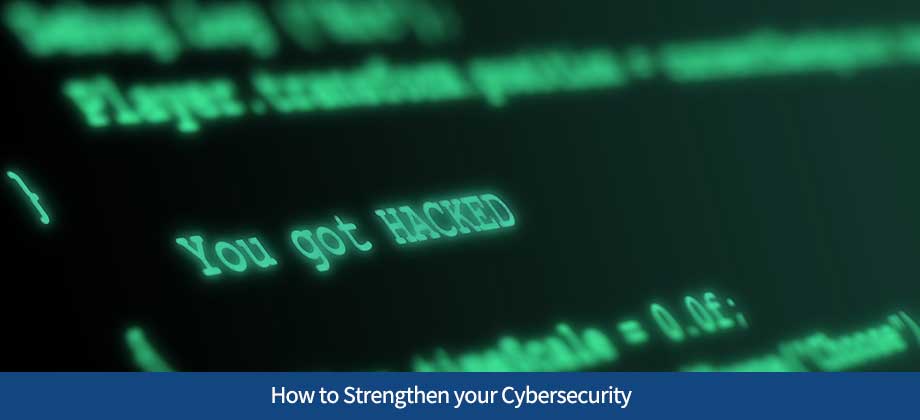How to Strengthen Your Cybersecurity

Cybersecurity Awareness Month has been held in October since its inception in 2004. According to the website, “The Cybersecurity and Infrastructure Security Agency (CISA) and the National Cybersecurity Alliance (NCA) lead a collaborative effort between government and industry to raise cybersecurity awareness nationally and internationally.” Cyber threats are more and more commonplace every year, with bad actors getting smarter and more stealth with their attacks. Cyberattacks are always evolving. With everyone completing countless tasks online these days, from paying bills to ordering groceries to renewing their driver’s license, there is no shortage of places cyber criminals could be lurking. With that said, we wanted to investigate some ways your small business could strengthen its cybersecurity–and keep those criminals at bay.
Training is Key
To help train your employees on cybersecurity, it’s important to know what this word actually means. “Cybersecurity is the practice of protecting systems, networks, and programs from digital attacks. These cyberattacks are usually aimed at accessing, changing, or destroying sensitive information; extorting money from users; or interrupting normal business processes,” as defined by V500 Systems.
Believe it or not, employees themselves are a very large reason behind small business data breaches. With proper training, you all can band together to help prevent a cyberattack on your network. Some things to train your employees on are recognizing phishing emails, not downloading anything that seems suspicious, making sure passwords are strong, and keeping customer information secure.
Multi-Factor Authentication
Multi-factor Authentication, or MFA, requires that users on your network have at least 2 methods of verifying their identity when signing in. For instance, a user could have to enter a password to sign into your network, and then have to authenticate via another method–perhaps a security code delivered via text or phone call. Having multiple methods of verification decreases the likelihood of a bad actor hacking your network. Check out this guide from Microsoft to learn how you can implement Multi-Factor Authentication across your business.
Antivirus Software
There are many places to shop for antivirus software these days. You’ll want to ensure every computer at your business has this software, and that it’s regularly updated (remember, cyber attacks are always evolving). Norton and McAfee are the most widely known names, but there are countless others out there.
Keep Your Networks Secure
Using a firewall is an important method to keep your networks safe. A firewall works by monitoring incoming/outgoing traffic on your network, looking to a predefined set of rules to determine whether to allow or block traffic. Firewalls can come in the form of hardware, software, SaaS applications, or public/private cloud. If your company has WiFi networks, you should always make sure they are hidden by setting up your router so it doesn’t broadcast your network name, or Service Set Identifier (SSID). Your router should always be protected by a password. And if you’ve got remote workers who need to access your network, use a Virtual Private Network (VPN) for an encrypted connection.
The Financial Pantry, ARF Financial’s marketing and financial blog, is an all-encompassing resource for small business owners looking to start, manage, and grow their business. We have articles offering advice on everything from today’s top industry trends to what’s happening in the financial industry. Browse through our resources, plus take a read through our white papers and case studies for even more information on loan products to help your business thrive.

